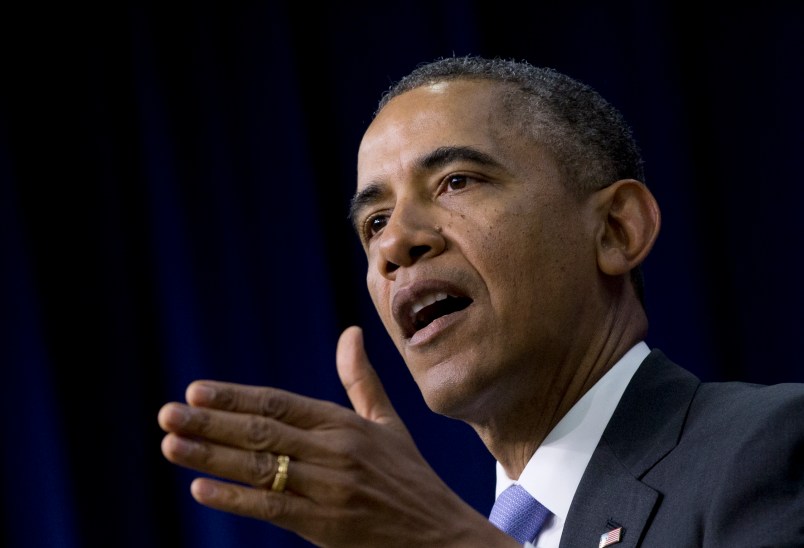President Barack Obama on Friday outlined specific changes he was recommending the National Security Agency make to two of its most contested practices: its phone records collection program and its surveillance of foreign leaders.
Obama’s first concrete recommendation addressed the NSA’s phone records collection program, authorized under section 215 of the Patriot Act. While he emphasized that the program does not examine the records of ordinary Americans and that the review board found no evidence the phone records program was abused, he announced the program would be altered.
“I believe we need a new approach,” the President said, according to his prepared remarks. “I am therefore ordering a transition that will end the Section 215 bulk metadata program as it currently exists, and establish a mechanism that preserves the capabilities we need without the government holding this bulk meta-data.”
The President ordered that records only be examined if a contact is two, rather than three, steps removed from a phone number connected to a suspected terrorist organization. The review board also recommended that such bulk records be removed to a third party, where the government can access them as needed. But Obama cautioned that approach could raise further privacy concerns with the third-party company or companies in control of the records, which would be performing a government function at greater expense and with greater legal ambiguity.
He also suggested the NSA work with Attorney General Eric Holder to reform its phone records collection program before it comes up for reauthorization by the Foreign Intelligence Surveillance Court on March 28.
The revelation that the NSA was monitoring the communications of dozens of foreign leaders also roiled the international community. In addition to ordering an end to the surveillance of foreign leaders, Obama announced he would extend certain privacy protections that U.S. citizens enjoy to individuals overseas.
“The bottom line is that people around the world – regardless of their nationality – should know that the United States is not spying on ordinary people who don’t threaten our national security, and that we take their privacy concerns into account. This applies to foreign leaders as well,” he said, according to his prepared remarks. “Given the understandable attention that this issue has received, I have made clear to the intelligence community that – unless there is a compelling national security purpose – we will not monitor the communications of heads of state and government of our close friends and allies.”
This post has been updated.






